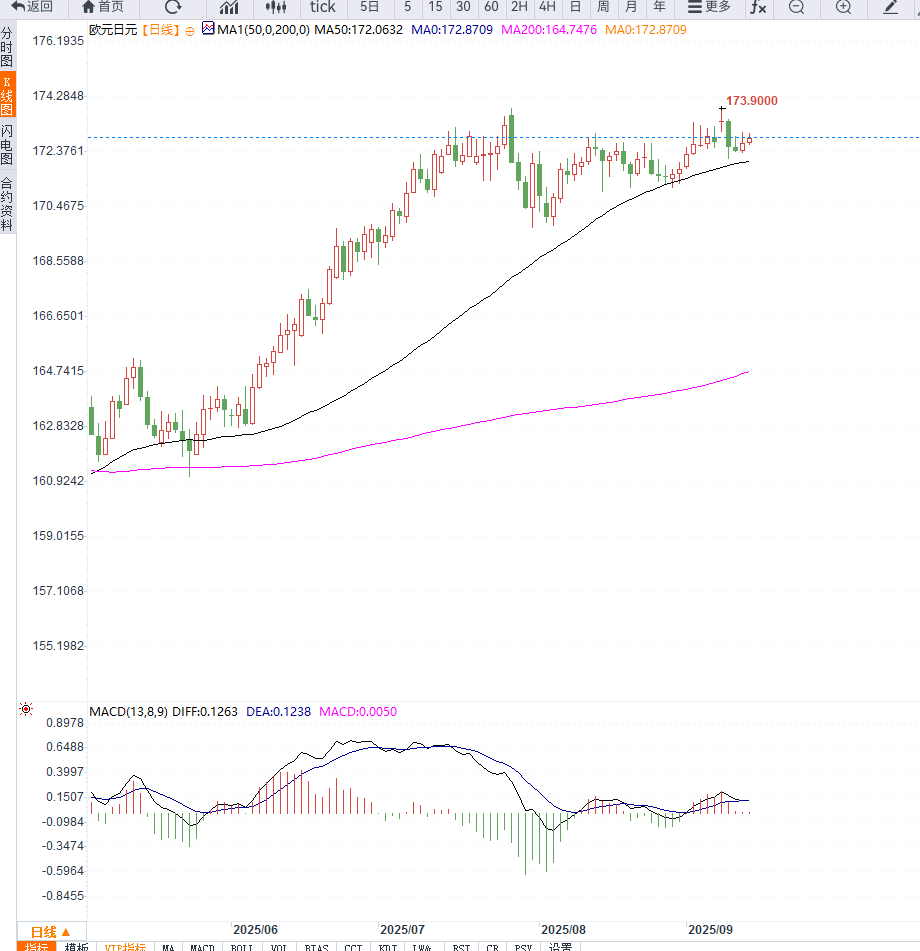Euro rises against yen ahead of German inflation data, as upbeat ECB forecasts dampen rate cut bets
2025-09-12 14:18:02
At its September policy meeting, the ECB decided to maintain the deposit facility rate at 2.0% and the main refinancing operation rate at 2.15%.
The European Central Bank said its outlook for economic growth and inflation remained optimistic, thus cooling market expectations for additional rate cuts.

According to market research, the money market currently only takes into account the probability of a final interest rate cut of about 40%, which is lower than previous expectations.
In Japan, after the resignation of former Prime Minister Shigeru Ishiba, his successor is likely to continue to put pressure on the Bank of Japan to maintain a low interest rate policy. This political uncertainty has further pressured the yen and provided support for the euro against the yen.
Some analysts believe that Ishiba Shigeru’s sudden departure makes it difficult for the Bank of Japan to promote policy normalization in the short term.
At the same time, the safe-haven demand for the Japanese yen has weakened due to the recovery of risk appetite in global markets. The number of initial jobless claims in the United States rose to the highest level since October 2021 last week, coupled with the previous weak non-farm payroll report, which led investors to strengthen their bets on the Federal Reserve cutting interest rates three times this year.
Despite higher-than-expected U.S. CPI data, concerns about a weakening job market are dominating market sentiment.
Judging from the daily chart, the euro has closed higher against the yen for two consecutive days. The current short-term resistance level is around 173.20. If it can break through this level, the next target may be the 173.50 to 173.80 range.
The support levels below are 172.50 and 172.20 respectively. If it falls back to the support zone, it may find buying support again and rebound. In terms of technical indicators, the RSI remains in the 55-60 range, indicating that there is still room for growth, but if there is a rapid retracement, short-term short positions may increase.

Editor's opinion:
Overall, the rise of the euro against the yen not only reflects the market's cautious wait for German inflation data, but also reflects the support for the euro from the European Central Bank's optimistic expectations.
In contrast, political uncertainty in Japan and a rebound in global risk appetite have weakened the yen's safe-haven appeal. As expectations for Fed policy continue to fluctuate, the euro is likely to remain relatively strong against the yen, with short-term focus remaining on German data and the Bank of Japan's policy signals.
- Risk Warning and Disclaimer
- The market involves risk, and trading may not be suitable for all investors. This article is for reference only and does not constitute personal investment advice, nor does it take into account certain users’ specific investment objectives, financial situation, or other needs. Any investment decisions made based on this information are at your own risk.





















